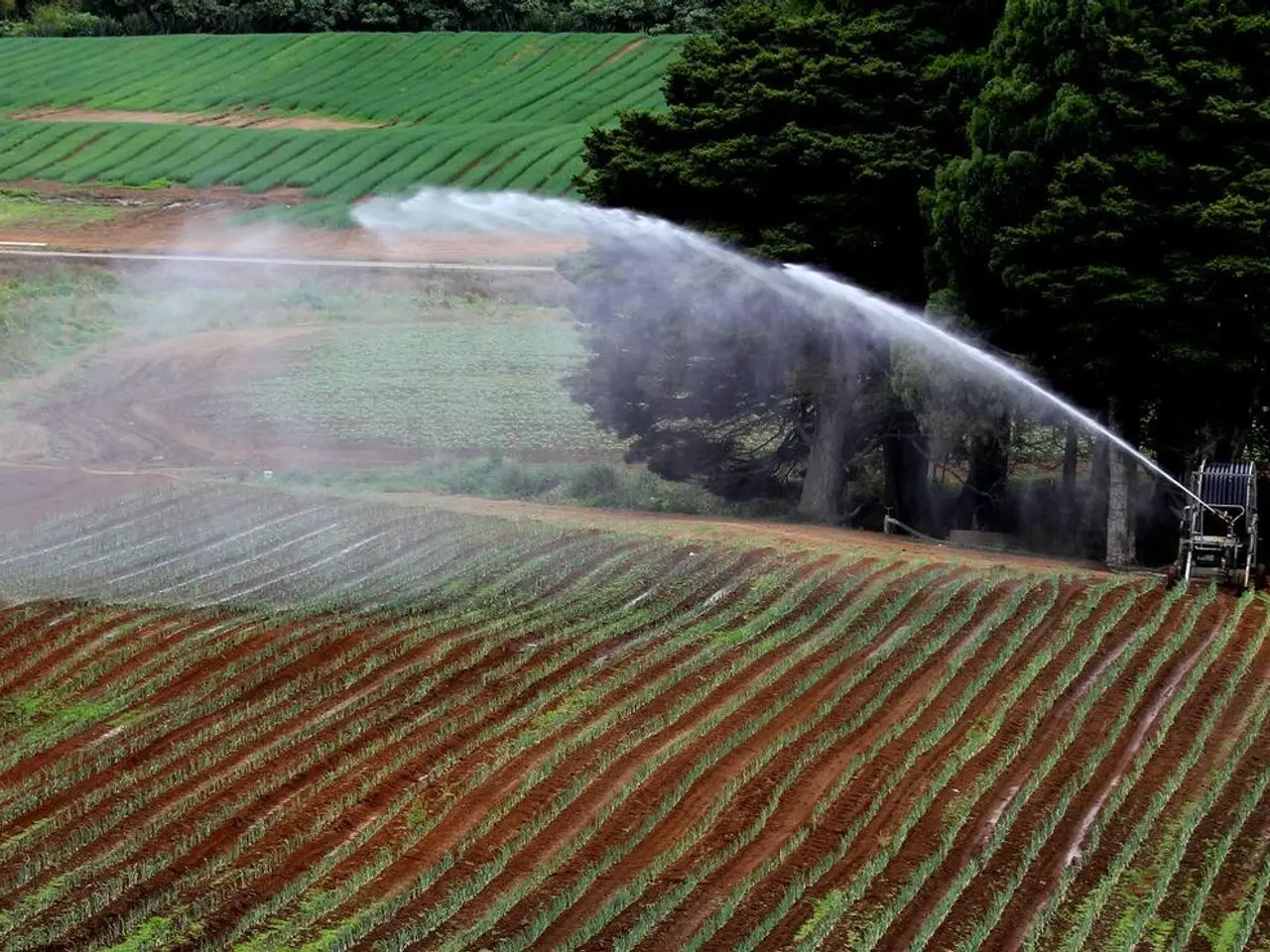Enhancing Crop Production through Advanced Farming Techniques in Agriculture
Precision agriculture, also known as precision farming or smart farming, is a revolutionary approach that customizes farming practices according to each field's unique needs. This innovative method is transforming the agricultural landscape, particularly in North America, South America, Europe, and beyond.
At the heart of precision agriculture is the use of technology to optimize every aspect of farming, from planting to harvesting. Automated machinery equipped with cameras, sensors, and GPS technology is making farming more efficient, accurate, and sustainable.
Enhancing Weed Control
One of the key benefits of precision agriculture is its ability to enable precise weed control. Automated machines, equipped with cameras and sensors, can identify and target weeds with pinpoint accuracy, ensuring a healthier crop and reducing the need for harmful chemicals.
Real-Time Data for Timely Decisions
Remote sensing through satellite and drone imagery provides real-time data on crop health, pest infestations, and other factors affecting yield. This data allows farmers to take corrective actions promptly, ensuring their crops thrive and maximizing their potential.
Harvesting at Peak Freshness
Automated harvesting machinery can harvest crops at their prime, ensuring peak freshness and quality while increasing market value. This not only benefits the farmers but also consumers who enjoy fresher, more nutritious produce.
Leading Regions in Precision Agriculture Adoption
The countries making the greatest progress in adopting precision agriculture are the United States and Canada in North America, Brazil and Argentina in South America, and Germany, France, and the Netherlands in Europe. These regions lead due to advanced technology adoption, large-scale farming, a focus on sustainability, and governmental support.
Optimizing Resource Usage
Precision agriculture allows for pinpoint accurate fertilizer application, ensuring crops receive the right nutrients at the right time, avoiding both over- and under-fertilization. This not only optimizes crop growth but also reduces production costs and has a positive environmental impact.
Precision agriculture systems also detect soil moisture levels and adjust irrigation accordingly, conserving water while assuring plants receive adequate hydration.
Data-Driven Decision Making
Data collection and analysis are crucial in precision agriculture. Technologies like drones, satellites, and ground sensors gather information about soil quality, moisture levels, temperature, and more. This data is then analysed to provide farmers with valuable insights into their fields' health and performance, enabling them to make educated decisions and continuously enhance their practices.
Remote sensing and data analysis enable early detection of pest infestations or disease outbreaks, allowing for targeted pesticide spraying or integrated pest management strategies.
Increased Efficiency and Reduced Costs
Automated machinery equipped with GPS and automation technology increases efficiency, decreases labor costs, and reduces human error in tasks like planting, harvesting, and more.
Geographic Information System (GIS) combines GPS data with other sources to create detailed field maps for informed decision-making about farming practices.
Environmental Sustainability
Precision agriculture promotes environmental sustainability through reduced resource usage and enhanced farming practices that minimize negative impact on the environment.
Maximizing Yields and Food Security
Precision agriculture aims to maximize crop yields and is a key contributor to food security. By making more effective use of water, fertilizers, and pesticides, precision agriculture maximizes resource efficiency, reducing production costs and having a positive environmental impact.
In conclusion, precision agriculture is transforming modern farming, making it more efficient, sustainable, and profitable. By adopting this innovative approach, farmers can ensure their crops thrive, maximize yields, and contribute to food security while minimizing their environmental footprint.
Read also:
- Understanding Hemorrhagic Gastroenteritis: Key Facts
- Stopping Osteoporosis Treatment: Timeline Considerations
- Tobacco industry's suggested changes on a legislative modification are disregarded by health journalists
- Expanded Community Health Involvement by CK Birla Hospitals, Jaipur, Maintained Through Consistent Outreach Programs Across Rajasthan








